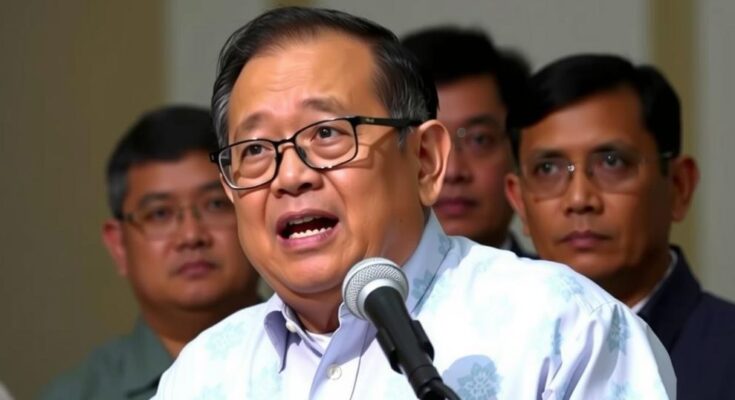President Prabowo Subianto’s proposal to pardon corrupt individuals returning stolen money has attracted criticism for potentially heightening corruption rates. Lakso Anindito of IM57+ argues that this plan undermines deterrents and fails to address systemic issues. Instead, he suggests focusing on stronger anti-corruption measures and ensuring law enforcement independence to combat corruption effectively.
Indonesian President Prabowo Subianto is facing criticism regarding his proposal to pardon individuals convicted of corruption who return their stolen assets. Lakso Anindito, the chairman of the Indonesia Memanggil 57+ Institute (IM57+), articulated concerns that such pardons would diminish the deterrent effect on corruption, potentially leading to an escalation in corrupt practices. He emphasized that merely offering amnesty does not tackle the systemic roots of corruption.
In his speech at Al-Azhar University in Cairo, President Prabowo suggested leniency for corrupt individuals who compensate for their crimes, even promising to protect their identities. However, Lakso Anindito countered this approach, proposing instead that the president intensify asset recovery efforts under the Asset Forfeiture Law and ensure the independence of law enforcement agencies to effectively combat corruption. He insisted on the need for tangible actions that would uphold the integrity of anti-corruption measures rather than empty promises.
Pardoning corrupt individuals has sparked significant debate about efficacy in the fight against corruption, with critics arguing it could normalize unethical behavior. Amidst these discussions, Prabowo’s intentions appear to raise important questions regarding the balance between forgiveness and accountability in maintaining public trust and integrity in governance.
The backdrop of this controversy is the ongoing battle against corruption in Indonesia, a pervasive issue that undermines governance and economic development. Previous measures aimed at addressing corruption have faced challenges, prompting discussions about innovative solutions. President Prabowo’s recent suggestion to allow corrupted individuals to reinstate stolen assets in exchange for immunity represents a significant policy shift, which has generated both support and backlash from various stakeholders, particularly concerning its implications for future corruption.
In conclusion, President Prabowo Subianto’s plan to pardon corrupt individuals who return stolen assets has incited criticism from various quarters, particularly concerning its potential to exacerbate corruption instead of alleviating it. Stakeholders advocate for stronger, more effective strategies that address the underlying causes of corruption, rather than offering leniency that may inadvertently encourage further illicit activity. The discourse surrounding this initiative illustrates the complexities of governance and the need for robust anti-corruption frameworks to preserve public integrity.
Original Source: en.tempo.co




